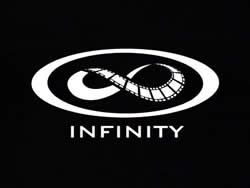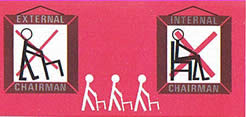ADULT EDUCATION
Mathematics at the Edge of the Rational Universe
These notes are designed for the intelligent adult who is interested in exploring the nature of mathematics from a philosophic point of view but who has no desire to acquire any more technical knowledge. The notes explores those aspects of the subject where logic almost breaks down and get to the very heart of the question as to how we know that something is true in mathematics.
 Mathematics is the art of logical story-telling and its creations exist only in the mind. Yet it's amazing how useful scientists have found these imaginative constructs in trying to understand the material universe. Nobody has ever seen a perfectly round circle or an infinitely long line of zero width. They’re pure figments of the mathematical imagination. As for imaginary square roots of 1, ideal points where parallel lines meet, and 6-dimensional space! What fantasies can be dreamt up by the fertile mind of a mathematician!
Mathematics is the art of logical story-telling and its creations exist only in the mind. Yet it's amazing how useful scientists have found these imaginative constructs in trying to understand the material universe. Nobody has ever seen a perfectly round circle or an infinitely long line of zero width. They’re pure figments of the mathematical imagination. As for imaginary square roots of 1, ideal points where parallel lines meet, and 6-dimensional space! What fantasies can be dreamt up by the fertile mind of a mathematician!
Stories, parables, fables, myths and legends can carry profound truths that have a powerful impact on the lives we lead. Mathematical stories are no exception. This gossamer web we mathematicians spin might be pure fancy but it's the best tool we have to understand and predict the material universe – and it reaches far beyond.
 These notes will take you on a journey to the extreme regions, just before the point where logic breaks down. It discusses the impossible, the infinite, the unimaginable, the uncomputable and the undecidable. Our motivation will be that of an explorer. We simply want to know what's out there.
These notes will take you on a journey to the extreme regions, just before the point where logic breaks down. It discusses the impossible, the infinite, the unimaginable, the uncomputable and the undecidable. Our motivation will be that of an explorer. We simply want to know what's out there.
After each chapter there’s a story, poem etc reflecting the ideas developed in that chapter. These may or may not aid the understanding of the chapter but at least they provide some breathing space before the next one and hopefully maintain the whimsical frame of mind in which this material can best be appreciated.
Here’s a check list to see if you have the right type of mind to enjoy these notes.
- Are you intrigued by the logical reflexiveness of the sentence “this sentence is false"?
- Have you read and enjoyed Alice's Adventures in Wonderland?
- Can you cope with the symbols in the following?
Let P denote a computer program and let D denote some data on which it acts. Suppose we denote the output by P[D]. So if P is a program for duplicating data then P[D] = DD. And if such a program is given its own description to duplicate, we have the equation P[P] = PP. - Would it interest you if one could prove the existence of God?
[Please note that all links are to Adobe .pdf documents. They will open in a separate browser window.]
